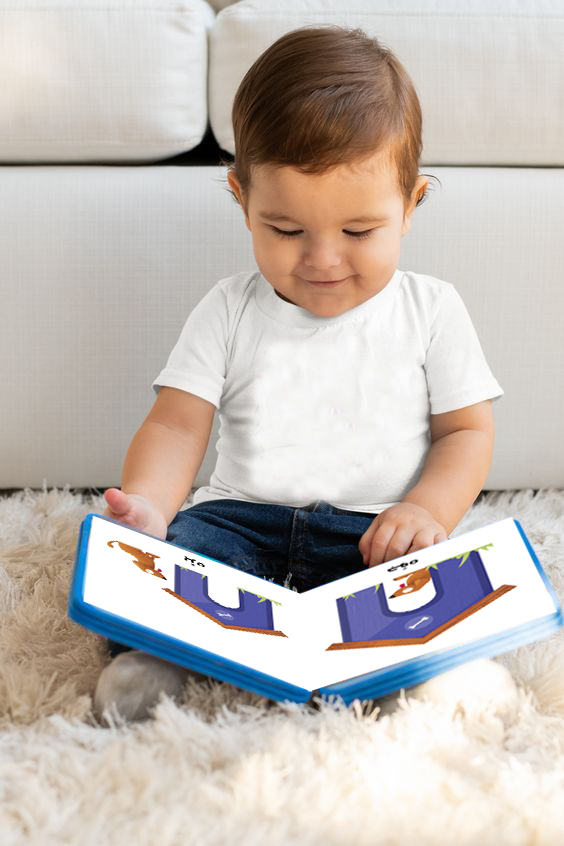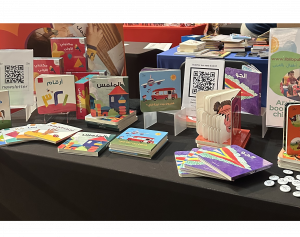As children venture into the realm of language acquisition, colloquial Arabic books play a crucial role in shaping their linguistic skills and nurturing a profound understanding of cultural intricacies. Discover the compelling advantages of integrating colloquial Arabic books to enhance children’s language development and cultural appreciation.
Immersion in Real-Life Conversations:
Colloquial Arabic books provide children with exposure to genuine language used in everyday conversations, allowing them to immerse themselves in the natural flow of spoken Arabic.
Cultural Insights and Context:
By delving into colloquial Arabic literature, children gain insights into cultural references, traditions, and societal norms, fostering a deeper understanding of the rich cultural tapestry woven into the Arabic language.
Vocabulary Enrichment and Idiomatic Expressions:
Through colloquial Arabic books, children encounter a diverse array of vocabulary, idiomatic expressions, and colloquial phrases, expanding their linguistic repertoire and enhancing their ability to communicate effectively in various social contexts.
Enhanced Listening and Speaking Skills:
Engaging with colloquial Arabic narratives hones children’s listening and speaking abilities, as they internalise the nuances of pronunciation, intonation, and rhythm inherent in spoken Arabic, ultimately strengthening their oral language proficiency.
Multifaceted Language Learning Experience:
Colloquial Arabic books offer a multifaceted language learning experience, encompassing dialectal variations, regional nuances, and authentic language usage, providing children with a well-rounded linguistic foundation steeped in cultural authenticity.
Incorporating Colloquial Arabic Books in Language Learning:
Incorporating colloquial Arabic books in children’s language learning endeavours is a strategic approach to nurturing language proficiency and cultural appreciation. By integrating colloquial Arabic literature into language curricula and home reading routines, children can reap the rich linguistic and cultural benefits, laying a solid foundation for lifelong language skills and a profound connection to Arabic culture.
Colloquial Arabic Books: An Immersive Introduction to Language
There is significant research highlighting the benefits of beginning the language learning journey with colloquial Arabic literature. The authentic representation of everyday conversations in these books provides children with a natural and relatable entry point into the Arabic language. Findings reveal that this immersion in colloquial Arabic enhances children’s grasp of spoken language, effectively laying the groundwork for their literacy journey.
Transitioning to FusHa: A Dynamic Approach to Literacy
As children become acclimated to colloquial Arabic through literature, the integration of FusHa introduces an exciting dimension to their language development. Research highlights how the transition to Fusha complements the initial colloquial exposure, fostering a seamless progression towards mastering Arabic reading and writing skills. This engaging and playful nature serves as a catalyst for sustaining children’s interest in language acquisition as they learn to read and write with comprehension.
As a publisher dedicated to promoting the love of language, in fun and interactive ways, LibLib Publishing is committed to curating a diverse collection of colloquial Arabic books tailored to enrich children’s language development and cultural understanding. Our carefully crafted selection of colloquial Arabic books embodies the essence of everyday discourse, cultural richness, and linguistic vibrancy, empowering children to embrace Arabic language and culture with confidence and enthusiasm.
In conclusion, colloquial Arabic books play a pivotal role in enhancing children’s language development and nurturing a profound appreciation of Arabic culture. By immersing children in authentic language usage, cultural insights, and diverse linguistic expressions, colloquial Arabic books for children serve as a catalyst for fostering multilayered language proficiency and a deep-seated connection to the Arabic language and heritage. Embracing colloquial Arabic books as invaluable resources in children’s language learning journeys paves the way for a future generation adept in linguistic diversity and culturally attuned communication.





